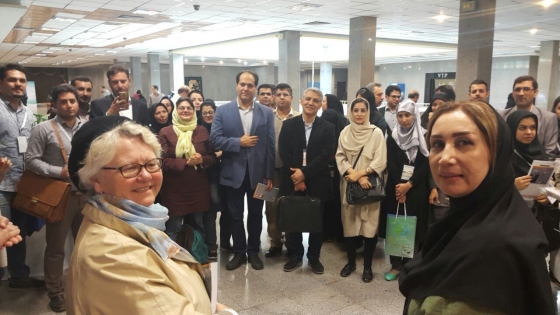Until 2007, Iran had no drug treatment services for women. In particular, there were no services for sex workers who are marginalised and vulnerable. UNSW’s Professor Kate Dolan established the first methadone clinic for female drug users; a one of a kind women-only service that grew to treat 100 women a day by 2011. The model inspired replication and now 20 similar drug treatment clinics operate across the country, providing services to more than 6,000 women.
Professor Kate Dolan began working in Iran at the invitation of a leading Iranian public health physician to provide training for prison doctors. Her work drew on what she saw during visits to women’s prisons in Tehran and she later established the women-only methadone program. To run parallel to this treatment program, an associated research program was developed. This research collected health and clinical data and clients were interviewed periodically about their experiences of drug use, and health or lifestyle changes they experienced. This research program provided a rare insight into the experience of this largely invisible population.
Kate’s new book, ‘Beating Drug Addiction in Tehran: A Women’s Clinic’, continues to draw on the experiences of women struggling with drug use in Iran. This book details the intimate lives of four Iranian women, their struggle with drugs and the daily grind they faced in their personal lives. A sample of the book is available here.
Kate’s work on drug treatment was featured as part of the IGD’s work on exploring the meaning of research impact. When reflecting on pathways to research impact in development more broadly, Kate noted that there were unexpected opportunities and challenges. She noted that local politics often influence which stakeholders can participate but for Kate and her team, being invited to the country and her relationship with key health stakeholders provided her team with unique access and facilitated local ownership.
In addition to forging ongoing relationships, Kate reflected on how important context is to both research integrity and impact. While randomised controlled trials or clinical trials are considered the gold standard of research methodology, the particular context Kate and her team worked in meant these trials were not possible. Responding with a flexible research methodology was important to reflect the context and to make the research as relevant to the context as possible.
